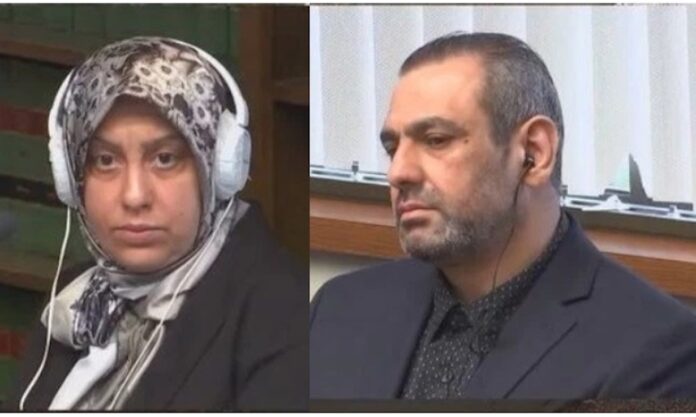- Not Guilty of Murder – A Washington couple was acquitted of attempted murder despite video evidence showing the father choking their teenage daughter unconscious in a suspected “honor killing” over her refusal of an arranged marriage.
- Daughter’s Harrowing Testimony – The 18-year-old victim, Fatima, described fearing for her life during the attack, losing consciousness multiple times, and escaping only due to bystander intervention.
- Public Outrage Over Verdict – The jury’s decision sparked backlash, with critics arguing that cultural motives were ignored after the judge barred discussion of “honor violence” in court.
The courtroom fell silent as the verdict was read. Ihsan and Zahraa Ali—the Washington couple accused of trying to strangle their own daughter in broad daylight—were found not guilty of attempted murder. Gasps echoed through the gallery. For months, this case had gripped the nation, fueled by horrifying footage of a father choking his unconscious teenage girl outside her high school. Now, after three days of deliberation, the jury had spoken.
But the story doesn’t end with the verdict.
A Chilling Attack Caught on Camera
Last October, outside Timberline High School in Lacey, Washington, a scene unfolded that would soon go viral. Surveillance footage showed Ihsan Ali, 44, grabbing his 17-year-old daughter Fatima in a brutal chokehold. Witnesses described her gasping for air, her body going limp—yet her father kept squeezing.
Prosecutors argued this was no ordinary assault. They believed it was an attempted honor killing, a desperate act to punish Fatima for refusing an arranged marriage and dating an American boy. But the jury never heard those words.
“I Thought I Was Going to Die”
Fatima, now 18, took the stand during the trial, her voice trembling as she relived the attack.
“Did you have any fear?” the prosecutor asked.
“Yes.”
“Fear of what?”
“Of dying.”
She described the moment she lost consciousness—four times—feeling the pavement against her face, her father’s hands crushing her throat. The last thing she saw before blacking out was her boyfriend and a friend rushing toward her.
That morning, Fatima had run away from home after discovering her parents had bought her a one-way ticket to Iraq. She feared they would force her into marriage. With just a bag of clothes and $100 stolen from her mother, she fled. But by afternoon, her parents were waiting at the bus stop.
When she refused to go with them, her father snapped. Witnesses said he punched her boyfriend in the face before lunging at Fatima.
Heroes in the Midst of Horror
What saved Fatima’s life wasn’t the law—it was the bravery of strangers. Her boyfriend, Isiah, and several classmates tackled Ihsan, kicking and punching him to break his grip. A bus driver, John Denicola, testified that Fatima’s eyes had rolled back, her face turning purple.
“The way he was squeezing… he was choking her,” Denicola said.
Josh Wagner, a U.S. Army veteran, pinned Ihsan down until police arrived.
Yet as the attack unfolded, Zahraa Ali stood by. Prosecutors claimed she tried to finish what her husband started, with Fatima testifying she felt her mother’s hands on her neck. But the jury wasn’t convinced.
Why the Jury Rejected Murder Charges
Without the ability to argue motive—Judge Christine Schaller had barred any mention of “honor killing” or arranged marriage—prosecutors relied on the video and eyewitness accounts.
Defense attorneys painted a different picture.
“There was no intent to kill,” argued Ihsan’s lawyer. “Just a father trying to take his daughter home.”
Zahraa’s attorney insisted she was only trying to shield Fatima from the chaos.
The jury ultimately convicted Ihsan of assault and unlawful imprisonment, sentencing him to up to 26 months behind bars. Zahraa was found guilty only of violating a court order and walked free.
Outrage and Unanswered Questions
The verdict sparked fury online, with many questioning how such a brutal attack didn’t warrant a murder conviction.
“This wasn’t discipline—this was attempted murder,” one Twitter user raged.
Others pointed to the cultural tensions at play. Had the jury been allowed to hear about the alleged honor motive, would the outcome have been different?
Fatima, now living separately from her parents, has not spoken publicly since the trial. But her testimony—raw, terrified, and heartbreaking—left an indelible mark.
As for Ihsan and Zahraa Ali? Their legal battle may be over, but the court of public opinion is still in session.
And for Fatima, the fight for her freedom is only just beginning.




